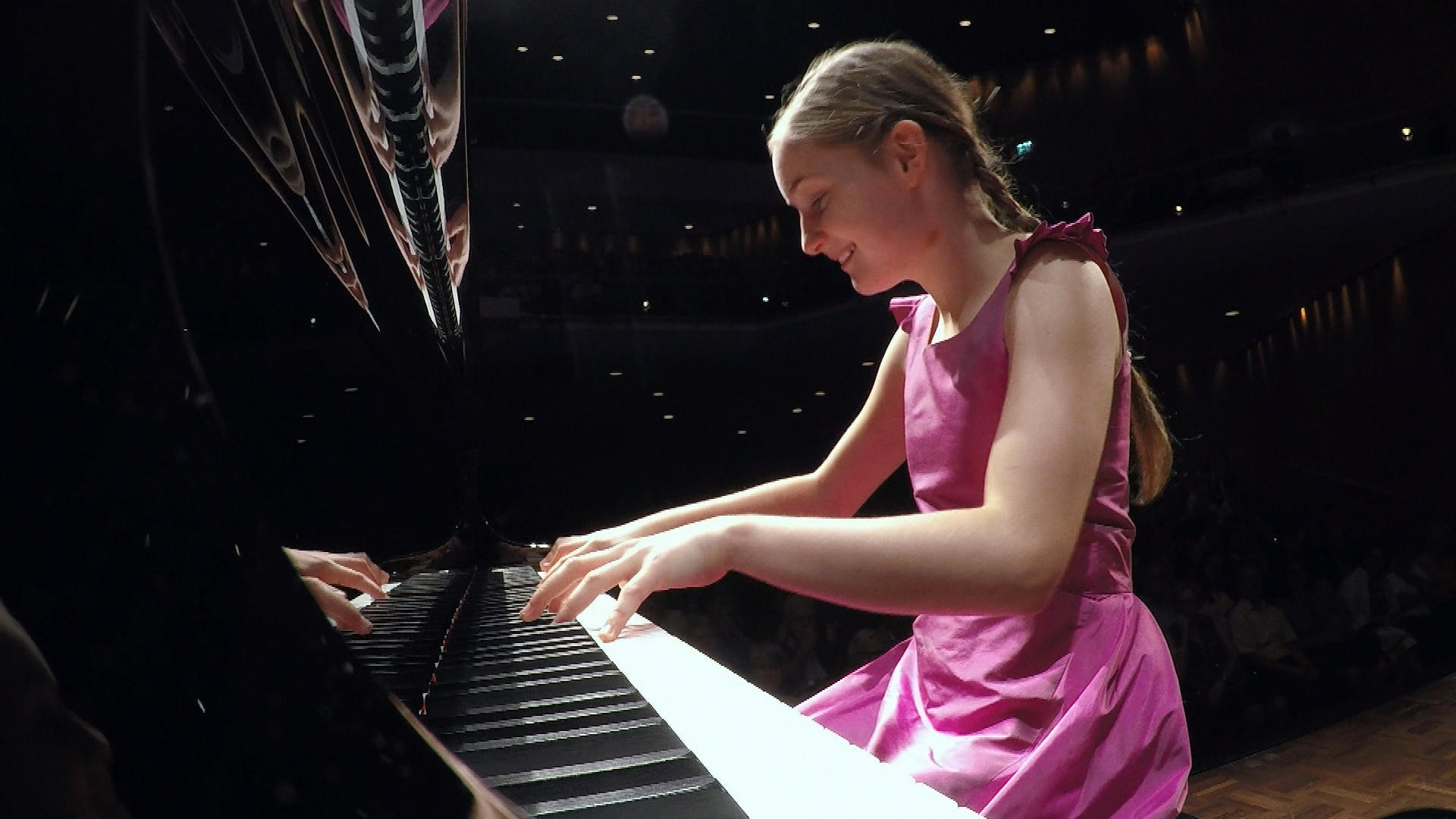Alma Deutscher emerges as an enigma, a phenomenon that defies the explanations science can offer. At just 12 years old when this story first aired, Alma is not your typical prodigy. She transcends the boundaries of age, mastering the art of composition at a level that baffles experts and laymen alike.
Born with an innate connection to music, Alma’s earliest memory traces back to the tender age of three, where the melodies of Richard Strauss stirred something profound within her. By the time she was four, melodies and ideas swirled in her mind, finding expression through her tiny fingers on the piano keys. Her parents, initially skeptical, soon realized that these were not mere echoes of melodies heard before but original compositions straight from Alma’s imaginative wellspring.
Scott Pelley, in a poignant interview, delves into Alma’s extraordinary journey, tracing the origins of her musical genius. From composing her first opera at the age of 10 to captivating audiences with her virtuosity on the piano and violin, Alma’s trajectory is nothing short of remarkable. She effortlessly traverses the realms of joy and darkness in her compositions, drawing inspiration from her imaginary composer friends like Antonin Yellowsink.
Yet, amidst her extraordinary talent, Alma remains grounded in her pursuit of beauty. She recognizes the ugliness that permeates the world but chooses to counter it with her music, striving to make the world a better place through her art.
Alma’s story is a testament to the boundless potential of human creativity, an ode to the mysteries of inspiration that elude rational explanation. As she continues to weave her musical tapestry, Alma Deutscher invites us to ponder the ineffable beauty of existence and the transformative power of art. In a world often cluttered with explanations, Alma’s music serves as a beacon of wonder, reminding us of the magic that lies beyond our understanding.
